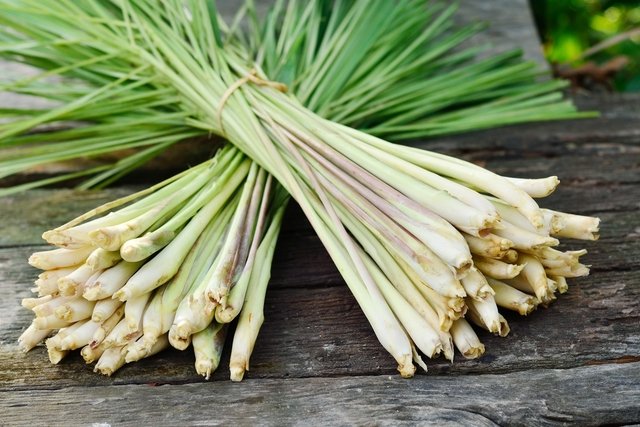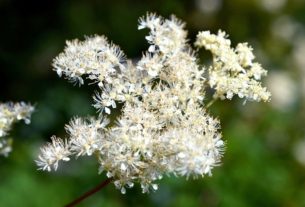Lemongrass, also known as lemongrass, sweetgrass or lemongrass, is a medicinal plant rich in citral, limonene and geraniol, bioactive compounds with antioxidant action, which combat excess free radicals and help prevent situations , such as cancer, gastritis and high blood pressure.
In addition, lemongrass also contains great amounts of myrcene, a bioactive compound with analgesic properties, helping to relieve mild pain, such as colic, muscle pain and headache.
Lemongrass has an aroma similar to lemon and can be found fresh or dried, in markets and supermarkets, and is used to prepare teas, compresses, juices, cakes or jellies. The plant’s essential oil is sold in health food stores and can be used as a healing agent.

Main benefits
As it is rich in flavonoids and phenolic compounds, lemongrass can be used to:
1. Help with weight loss
Because it has diuretic properties, lemongrass promotes the elimination of excess body fluid, reducing belly swelling, making it an interesting option to include in weight loss diets. See how to use lemongrass to lose weight.
2. Help in the treatment of gastritis
Lemongrass can help in the treatment of gastritis, because it contains great amounts of flavonoids and tannins, compounds with antioxidant and anti-inflammatory action, neutralizing and reducing acidity in the stomach and helping to treat reflux and gastritis.
In addition, lemongrass also contains bactericidal properties, helping to treat Helicobacter pylori, a bacteria that lives in the stomach and causes gastritis, peptic ulcers and even some types of cancer.
3. Relieve pain
Because it contains myrcene and citral, bioactive compounds with analgesic properties, lemongrass helps in the treatment of pain, such as headache, muscle pain, stomach ache and rheumatism.
4. Lower LDL cholesterol
Lemongrass is rich in antioxidants, such as limonene and geraniol, which fight free radicals, preventing the oxidation of fat cells, helping to reduce levels of “bad” cholesterol, LDL, and triglycerides in the blood and preventing diseases, such as stroke, heart attack and atherosclerosis.
5. Help control blood pressure
As it has diuretic properties, lemongrass helps eliminate excess sodium in the urine, helping to control blood pressure.
Furthermore, the antioxidant and anti-inflammatory compounds present in lemongrass, such as citral, limonene and geraniol, reduce inflammation and promote relaxation of the arteries, improving blood circulation and preventing high blood pressure.
6. Prevent cancer
Lemongrass is a medicinal plant rich in antioxidants, which help strengthen the immune system, preventing the growth and development of cancer cells.
7. Combat insomnia and anxiety
Lemongrass contains compounds with sedative action, such as citral, which acts on the central nervous system, improving sleep time and quality.
In addition, lemongrass also has a calming and relaxing action and can be used to help treat anxiety and stress.
8. Promote wound healing
Lemongrass essential oil has powerful antimicrobial action and, therefore, can be applied to the skin to improve wound healing.
9. Help in the treatment of candidiasis
Lemongrass contains fungicidal properties, helping to combat Candida albicans, a type of fungus responsible for vaginal and oral candidiasis.
In addition, lemongrass can also be used to help treat other types of fungal contamination, such as ringworm and athlete’s foot.
10. Fight bad breath
Because it has bactericidal and antiseptic action, lemongrass can be used in preparations such as teas or natural mouthwash to combat bad breath caused by gingivitis, an inflammation of the gums caused by the accumulation of bacteria between the teeth. Find out how to use lemongrass to combat bad breath.
11. Keep insects away
Lemongrass can also be used to ward off insects because of its smell, which is irritating to mosquitoes and flies.
How to use
Lemongrass can be used to prepare teas and juices, or in the form of compresses. Additionally, lemongrass essential oil can also be applied to the skin to treat wounds and ringworm.
- Lemongrass compress: Dip a piece of gauze or clean cloth in lemongrass tea and apply it to the wound or painful area. Leave to act for at least 15 minutes;
- Lemongrass essential oil: Mix 3 drops of essential oil in 1 tablespoon of vegetable oil, such as coconut, jojoba or olive oil, and apply to the ringworm or wound. You should avoid sun exposure for up to 6 hours after applying this oil, to avoid skin irritation.
Lemongrass essential oil can also be used as an insect repellent or air freshener, just add 3 to 5 drops of this oil in a diffuser.
In addition, lemongrass can also be used in some culinary preparations, such as juices, cakes, jelly and ice cream.
How to prepare lemongrass tea
Lemongrass tea is easy to make and can be consumed 3 to 4 times during the day.
Ingredients:
- 1 tablespoon of fresh lemongrass leaves;
- 1 cup of boiling water.
Preparation mode:
Place the chopped fresh leaves in a cup and cover with boiling water. Cover, let rest for 5 to 10 minutes, strain and then drink.
Possible side effects
Consumption of lemongrass can cause dizziness, sleepiness, weakness, nausea, dry mouth and low blood pressure, which can cause fainting.
When it is not indicated
The use of lemongrass is not recommended for women who are pregnant or breastfeeding. It also cannot be used by children under 18 years of age, people with heart, kidney or liver diseases.
Furthermore, people who use medications with a calming effect and to control blood pressure should consult a doctor before consuming lemongrass.

Sign up for our newsletter and stay up to date with exclusive news
that can transform your routine!
Warning: Undefined array key "title" in /home/storelat/public_html/wp-content/plugins/link-whisper-premium/templates/frontend/related-posts.php on line 12
Warning: Undefined array key "title_tag" in /home/storelat/public_html/wp-content/plugins/link-whisper-premium/templates/frontend/related-posts.php on line 13



